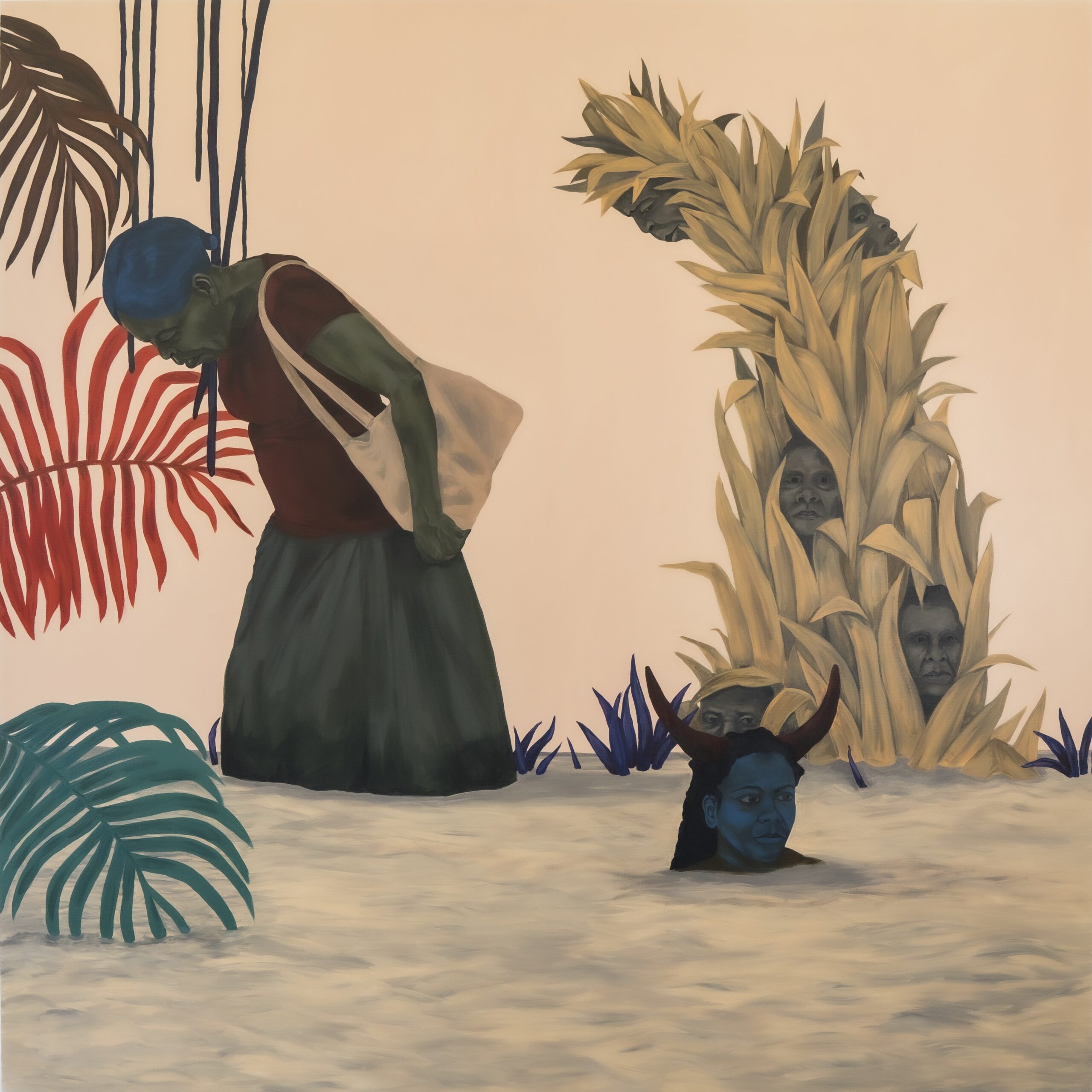(Un)Learning Revolution, a Residency with Tessa Mars
- Cecilia González Godino and Corine Labridy
- Department of Francophone, Italian and Germanic Studies (FIGS), Department of Spanish and Portuguese, School of Arts & Sciences
-
Artist Residency Grant

Tessa Mars, A vision of Peace, Harmony and Good intelligence, 2020. Acrylique sur toile, 190 cm x 190. Photo by Takeshi Fujimura.
The Department of Spanish and Portuguese and the Program in French and Francophone Studies will host Haitian artist Tessa Mars in residence for the Spring 2024 semester: a joint initiative by both programs to decolonize the ways in which the Caribbean archipelago is framed in academic settings, from national and linguistic perspectives and towards less fragmented, more relational standpoints.
Tessa Mars’s body of work presents an effort to reconnect to a Haitian perspective of the world that is separate from the colonial narratives about Haiti, and she investigates the legacy of the Haitian revolution in the community’s identity, both on Haitian soil and outside of it. In her practice, Mars proposes storytelling and image-making as transformative strategies for survival, resistance, empowerment and healing, drawing from the role of women in narrating and transmitting knowledge and skills, and in the process of communal self-identification. She investigates gender, history, and traditions, and she challenges dominant narratives that seek to simplify and flatten the experiences of people living in the “margins” of the world.
Mars’s main body of work is centered around her alter ego, Tessalines, a hybrid character based on the leader of the Haitian Revolution, Jean-Jacques Dessalines. Created in 2015, the character represents a link between past and present, a tool to challenge ideas around women’s contributions to public life and the institutionalized silences and omissions. Tessalines allows for alternate readings of events on a national and public level but also on a personal, domestic level.
From a multimodal perspective, through paintings, audio pieces, performances, and objects, Mars searches for a “spiritual space” of migration that puts into question colonial relations to the land and modern conceptualizations of belonging by expanding the temporality of Haitian lived experience and alternative futures.